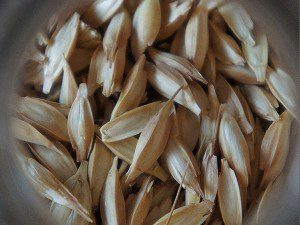Contributing Writer for Wake Up World
Over the last several years, many who value health are becoming aware of the dangers of gluten, especially when it’s consumed as modern wheat. Severe digestive distress, celiac disease, rheumatoid arthritis, ADHD, multiple sclerosis and even mental illnesses such as schizophrenia are just a few of the maladies linked to the protein in wheat, barley and rye. As reactions continue to escalate at a staggering rate in the United States, both researchers and private organizations are beginning to take a look at ancient cereal grains as a possible solution to our wheat troubles.
Commonly known as einkorn, Triticum monococcum is an intriguing heritage grain that was harvested as early as 16,000 BCE. Cultivation began during the Neolithic Era and early Bronze Age (10,000-4,000 BCE) and continued into the early 20th century, when much of einkorn production was replaced by hybridized, high-yield, pest-resistant strains of what we now recognize as modern wheat.
Einkorn is nutritionally superior to hard red wheat, supplying higher levels of protein, fat, phosphorous, potassium, pyridoxine and beta-carotene. It’s also much lower in problematic gluten. Enthusiasts of einkorn believe it tastes better, lending a “light rich taste which left common bread wheat products tasteless and insipid by comparison,” according to the ASHS publication Progress in New Crops. What’s really garnering attention, however, is that einkorn may be nontoxic to individuals suffering from gluten intolerance.
Safe for celiacs?
Several studies indicate that einkorn could provide a new grain option for the millions with celiac disease and gluten sensitivity. In one experiment, intestinal biopsies were taken from 12 treated celiac patients, as well as 17 control subjects, and cultured with either standard bread gliadin or einkorn gliadin for 24 hours. At the end of the testing, researchers concluded, “[This study shows] a lack of toxicity of T. monococcum gliadin in an in vitro organ culture system, suggesting new dietary opportunities for celiac patients.”
Another study involved 12 celiac patients who had been adhering to a gluten-free diet for at least one year. In a single-blind, cross-over investigation, each participant was given einkorn wheat, rice or amygluten on days 0, 14 and 28. At the end of the study, researchers noted that, although “[n]o definite conclusion can be drawn on the safety of Tm [einkorn]. . . Tm was, however, well tolerated by all patients providing the rationale for further investigation on the safety of this cereal for CD patients.”
Additionally, Norwegian researchers have identified a T-cell stimulatory gluten peptide in modern wheat which triggers an autoimmune response in people sensitive to the protein. Alpha-gliadin genes on wheat chromosome 6D appear to be the culprit. Of particular interest to individuals with celiac disease is that einkorn wheat does not contain this troublesome peptide. Further research is needed, but preliminary findings hold promise for those suffering from gluten reactions.
Sources:
http://science.naturalnews.com
Previous articles by Carolanne:
- Hemp – The Ultimate Cash Crop, Health Food and Environmental Savior Rolled Into One
- Confirmed by Science: You Really Can Change Your DNA – Here’s How
-
Chemtrails: Learn How to Protect Yourself From These Treacherous Poisons
- Kick the Caffeine Habit and Feel Better Quick with these Natural Alternatives
-
Yet Another Reason to go Organic – Research Verifies it Really is More Nutritious
- Top 10 Food Frauds: Formaldehyde, Plastic, Melamine & Caustic Soda Found in Common Foods
- Autistic Boy With Higher IQ Than Einstein Discovers Gift After Removal From State-Run Therapy
-
Enhance Spiritual, Mental and Physical Well-being with a Pineal Gland Detox
About the author:
I’m Carolanne — a writer, chef, traveler and enthusiastic advocate for sustainability, organics and joyful living. It’s good to have you here. If you would like to learn more, connect with me at Thrive-Living.net or visit Twitter.com/Thrive_Living.Please note: this article was first published on Natural News.

If you've found value in our articles, we invite you to support the release of our brand-new book, "Gratitude Practices for Kids: A Practical Guide for Adults to Instill a Spirit of Appreciation and Positivity in the Next Generation."
"Gratitude Practices for Kids" brings together over 25 innovative and accessible practices designed to enhance gratitude in everyday life. This comprehensive guide is backed by 17 scientific studies, ensuring each concept is grounded in research, underscoring our commitment to nurturing growth, emotional intelligence, and positive interactions between adults and children.
We encourage you to opt for the paperback version to celebrate this new release. Dive into its fresh pages away from digital distractions, allowing you to immerse yourself in the transformative practices it offers.
Over recent years, Wake Up World has faced significant online censorship, which has impacted our financial ability to operate. Moving into book publishing represents a strategic step to secure the ongoing funds needed to continue our mission. By purchasing Gratitude for Kids, you help us keep our content free and accessible to everyone, avoiding needing a paywall. With over 8,500 articles published in the last 13 years, we remain dedicated to keeping our valuable content open to all.









